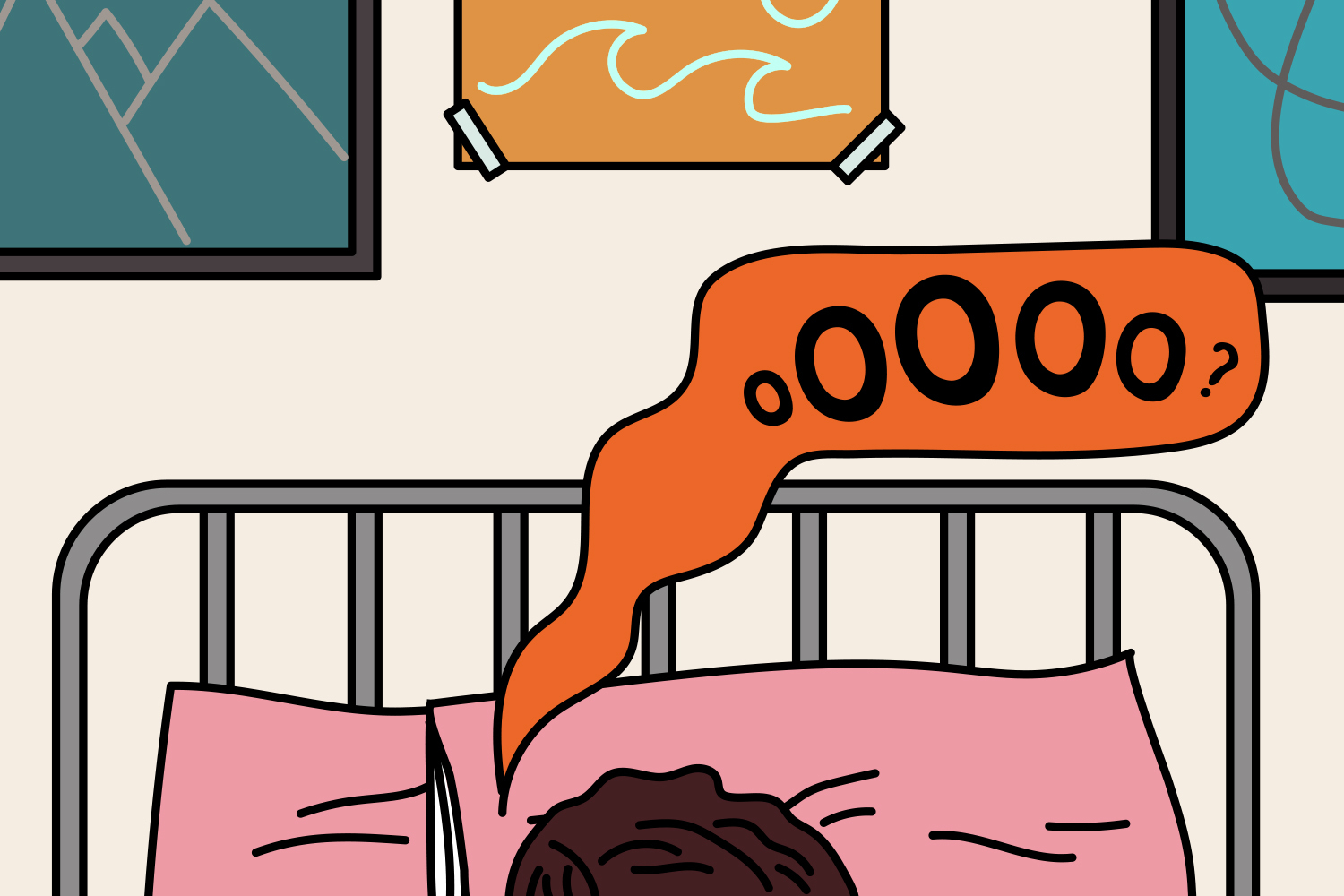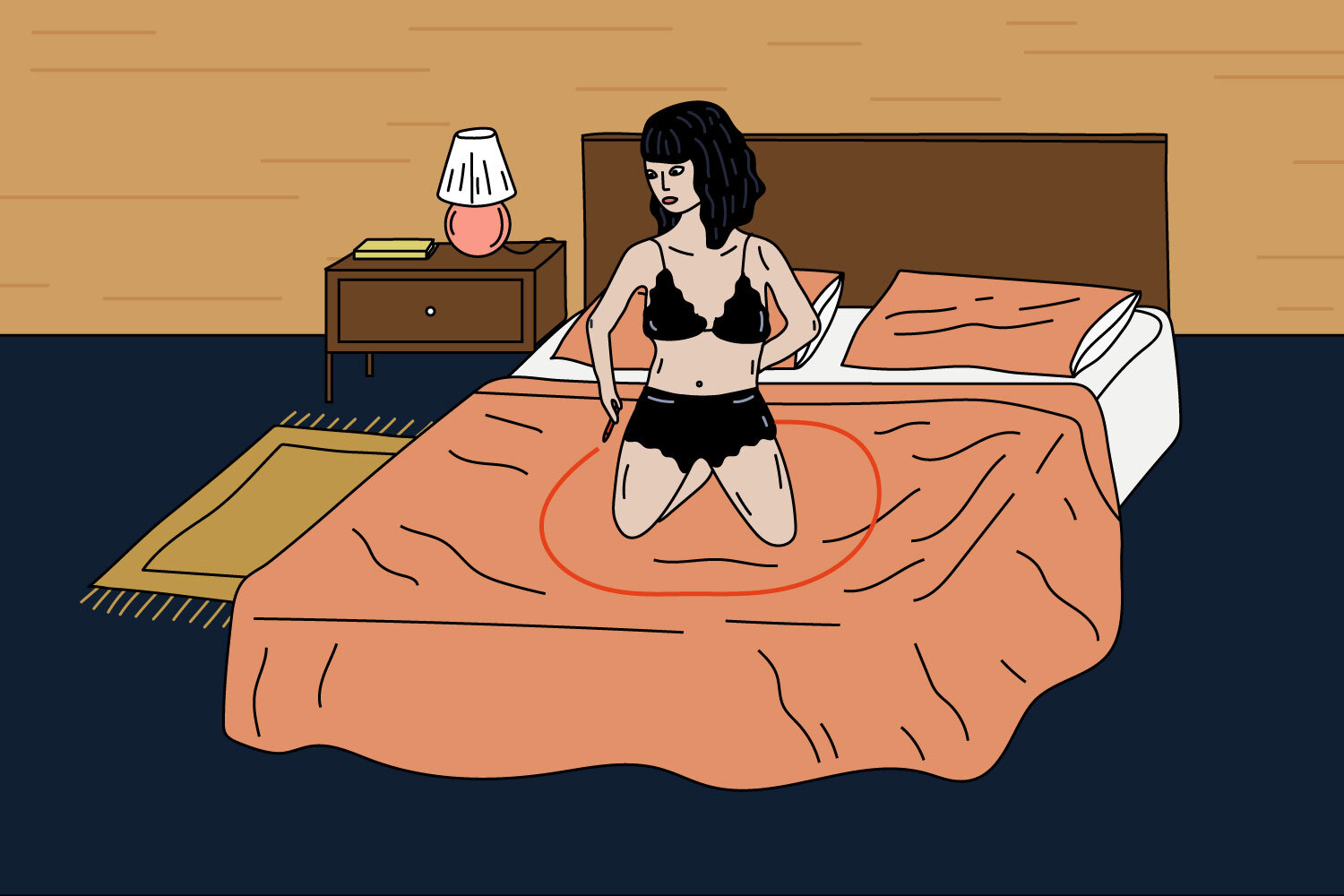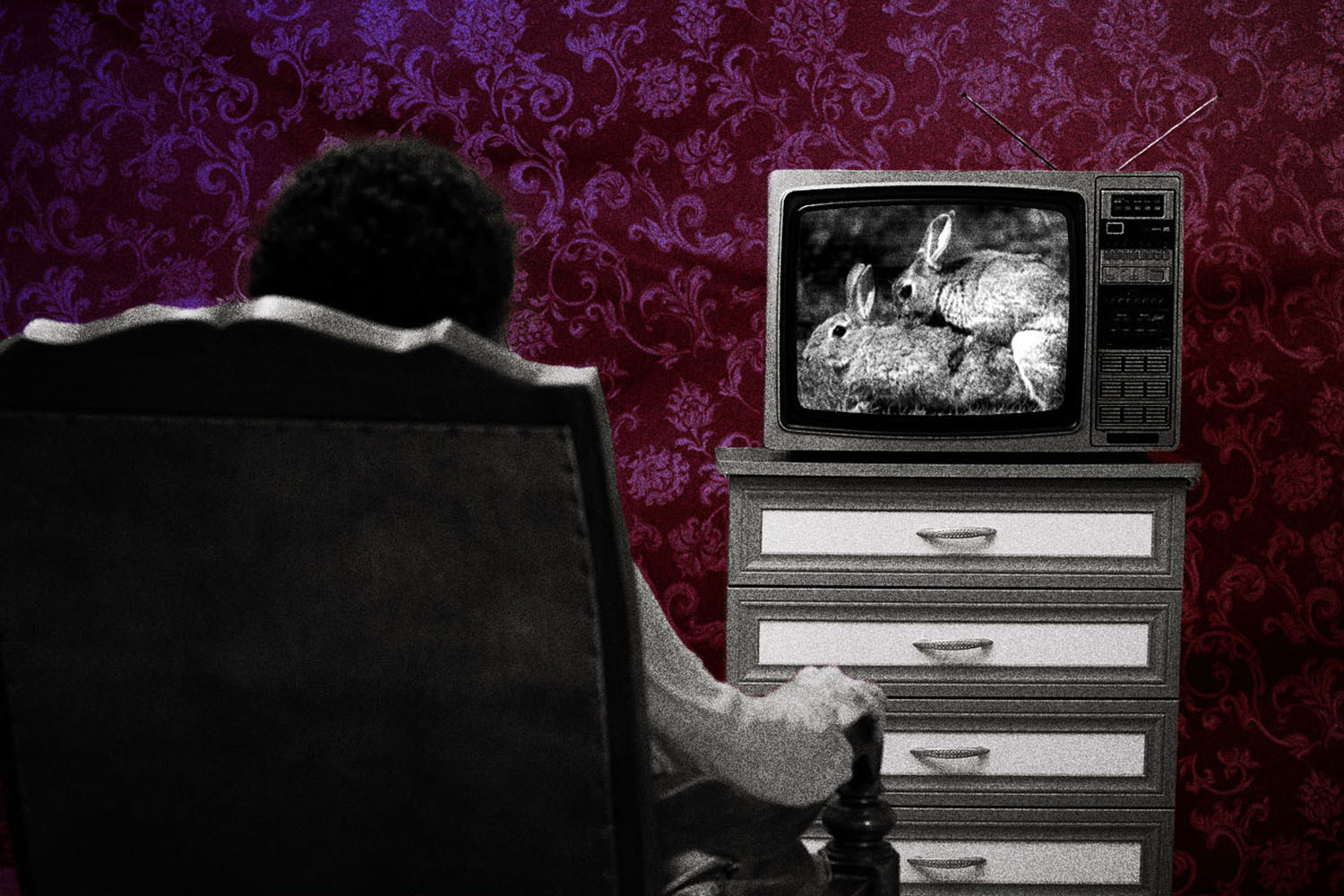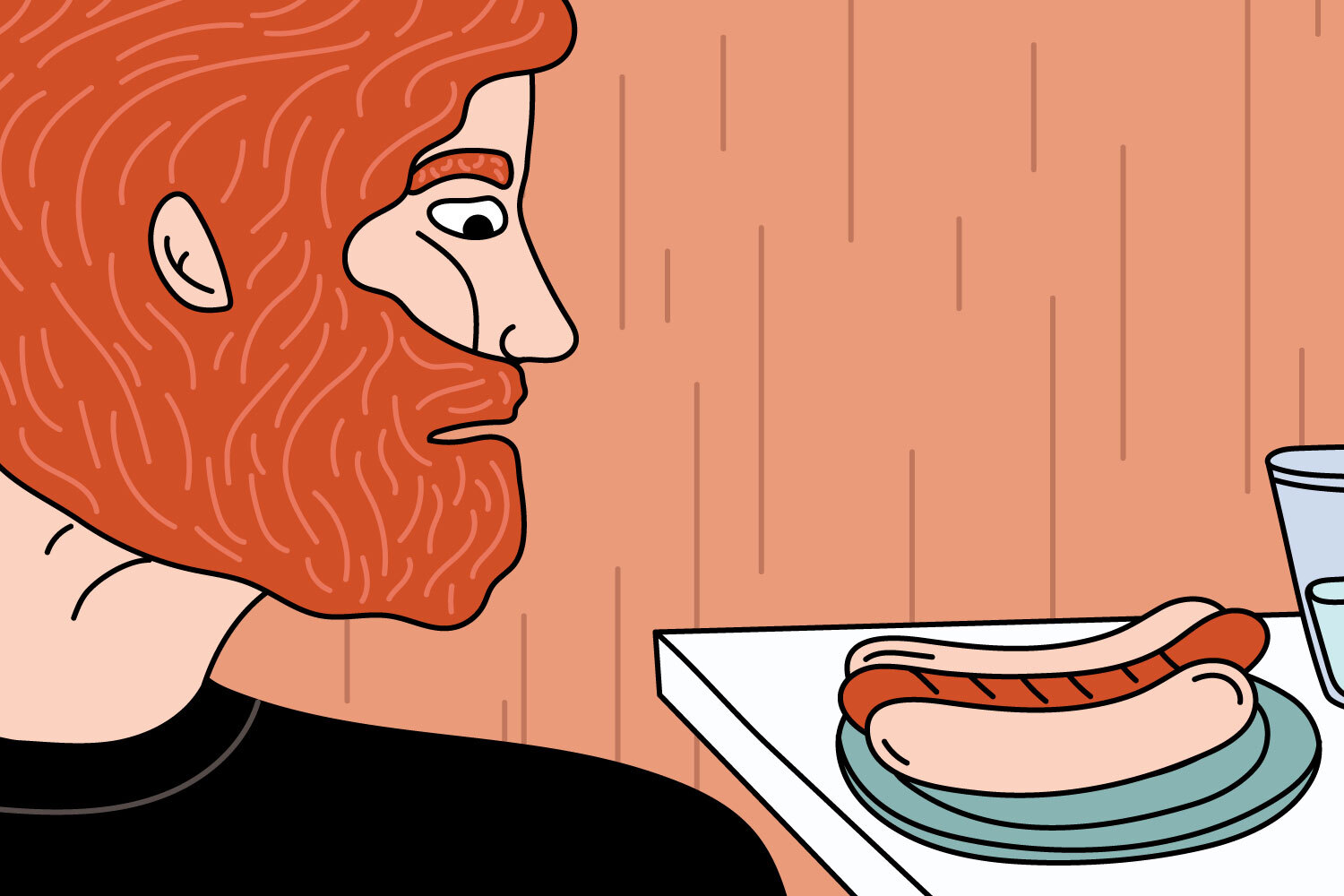To be clear, Ian Kerner never meant to write a guide for couples navigating the ruins of their post-pandemic sex lives — and for the record, he didn’t. The renowned sex therapist tells InsideHook that while his latest book, So Tell Me About the Last Time You Had Sex, was completed after COVID-19 had taken hold, it “was pitched and proposed and sold and thought about well before the pandemic.”
Unfortunately for Kerner, things take time in the publishing world, and by the time the book debuted in April 2021, the pandemic was pretty much all anyone wanted to talk to him about.
“It was not a book written as a guide to sex during COVID or sex post-pandemic,” says Kerner. “It was worked on well before the pandemic.”
That said, he’s neither surprised to see the book incorporated into the post-pandemic sex discourse nor opposed to viewing it through that lens. “I think that the pandemic has exacerbated and amplified a lot of the issues that are presented in the book,” he says. “I think many couples’ sex lives have really been negatively impacted by the pandemic, and now’s a good time — more than ever as we’re emerging from COVID — to get back into a sexual routine.”
But the pandemic is hardly the only thing that’s changed how we have, think and talk about sex in the nearly two decades since Kerner published his first book, the seminal guide to “cliteracy,” She Comes First.
“In the first book, twenty years ago, I was working out my own relationship with the intercourse discourse. I was championing cliteracy. I was trying to get men to have a different idea of female sexuality,” says Kerner. “There was a lot of initial exploration, and, of course, the book was focused on oral sex.”
What’s changed today? “I think our culture seems to be more cliterate on the whole,” says Kerner. “There’s much more attention being paid to outercourse as opposed to just intercourse. There’s been a renaissance in sex toys that are for clitoral stimulation. I think it’s soaked into the atmosphere and it’s a lot easier to talk about.”
Today’s sexual landscape is far from a blissful, sex-positive oasis, however. There are still plenty of harmful stereotypes and internalized narratives dictating how we, as a society and as individuals, approach sex. With So Tell Me About the Last Time You Had Sex, which gets its title from the signature question Kerner asks his new patients, the self-proclaimed “Sherlock Holmes of the Bedroom” hopes to both illuminate and deconstruct some of those persistent, often insidious narratives.

“With this book, I was trying to continue that dialogue, to continue to talk about the prevalence of cultural narratives around sex and how we internalize those narratives and how we construct our own sex lives around those narratives,” says Kerner. “I wanted to encourage readers to challenge the cultural sex scripts that they’ve internalized, that affect and maybe get in the way of their sex lives.”
We caught up with Kerner about the new book, the harmful narratives that are still preventing people from living their best sex lives, and, inevitably, how the pandemic may have exacerbated — or, in some cases, alleviated — those sexual roadblocks.
InsideHook: Something you call the “sex script” is a huge part of this book. What is the sex script, and what does it mean for couples to start thinking about it more actively?
Ian Kerner: Patients come into my practice and they’re in pain. They’re dealing with problems: being stuck in a sex rut, no desire, mismatched libidos, erectile unpredictability, lack of orgasm, pain — whatever it is. They’re coming in with a problem and they want a solution and I want to help them. Once I’ve learned about the issue and I’ve walked around it a little bit and I have a picture of what it is they’re dealing with, I will always ask the question, “So tell me about the last time you had sex.” I believe that every sexual event or every sexual encounter tells a story that has a beginning, a middle and an end. There’s a sequence of interactions that are physical, psychological and emotional, and those interactions move forward and constitute the sex script. And your sex script either works or it doesn’t. It either leads to pleasure and satisfaction and you don’t really think about it, or it reinforces the problem. Really, the sex script is your sex life in action. It’s the manifestation of the problem or the issue and it’s a way of targeting where the problem is occurring in the sequence of interactions and what we could do differently.
When you ask your patients the titular question, “Tell me about the last time you had sex,” what’s the typical response?
Everyone’s sort of intrigued by the question. Nobody’s really put off by it. The first thing I’ve noticed is that many couples often can’t agree on or remember the last time they had sex. There’s sometimes a little bit of humor and a break in some of the heaviness. Some couples don’t understand exactly what I’m asking, what I really want. I’m going to ask questions that are moment to moment: ‘How did you initiate? Who initiated? Where did it happen? When did it happen? Why did it happen? What did you do next to generate arousal? To get things warmed up? Was it mentally based? Was it physically based? Were you in sync with each other? What activities didn’t you engage in? Oh, why not?’ I get very, very detailed and we get into the nitty gritty very quickly. And it’s amazing how couples can be a little shy of that, but once we’re doing it, they can really get into it. I help them dip their toes into the shallow waters and get talking about this stuff, and then people start swimming. It’s really nice. And they get the concept — they get it. Once you’ve done this with somebody and you’ve walked through a sexual event, we can look at a big picture together. My work is incredibly co-constructive: ‘Well, what do you think about what you just told me? Where would you want to change it or fix it? If I was going to give you a homework assignment, what part of the sex script would we focus on? And what would we do?’
Now, of course, I usually have that formulation in mind already, and I might be leading them to think about a few things that I have in mind, but it’s really a nice way of thinking big picture, and it’s a clear way. When you’re struggling with your sex life, you’re thinking about what’s happening, but you’re also thinking about your past and your history and your relationship and everything that’s affecting it. It’s a little chaotic. So this becomes an organized way to put sex front and center and see how sexual problems occur in action.
What’s usually at the root of a couple’s sexual issues?
One thing that I noticed universally is that when couples are creating sex scripts, they’re really just thinking about sequences of physical behaviors. That’s what their sex lives have become, and they’re not really thinking about mind-based arousal. I’ll introduce couples to that concept. There are a lot of women who can fantasize their way practically to orgasm without touching themselves, and men can get erections by looking at porn and not touching themselves. That is mind-based psychogenic arousal that is not in the sex script. It might’ve been in the very beginning, because everything was new and unpredictable and novel, but the sex script is now dehydrated of an erotic aliveness. That’s definitely one major theme across almost every couple, regardless of gender, orientation, age: wanting but not knowing how to inject mind-based arousal into the sex script.
In the book, you write that many people might feel some reluctance to think about a sexual interaction as a ‘script,’ because we don’t like to think of sex as a scripted thing. We have this idea that sex has to be ‘spontaneous.’
Well, I think that’s ridiculous. That’s an unexamined sex life. We don’t want to have unexamined lives and we don’t want to have unexamined sex lives. To think we’re going to have these spontaneous sex lives, that they’re going to work perfectly and aren’t going to require any work, is absurd. And that’s why so many men that I work with are struggling with psychological erectile unpredictability. They blame it on porn because when they’re watching porn, it’s easy. There’s nobody in the room. You can get aroused. You don’t have to worry about satisfying anybody or thinking about anybody. You’re just focused on yourself and you’re completely relaxed. Sex with an actual person requires a little bit of attunement. It requires a little bit of work. It requires a little bit of a vulnerability and it requires a little bit of practice with somebody and getting to know somebody and getting into your groove.
All I’m really asking people to do is to examine their sex life, to think about their last sexual event, potentially deconstruct it and reconstruct it in a way that can lead them to pleasure and lead to great spontaneous sex. In the book, I compare it to playing jazz. This last year during COVID, I started taking up piano again, and I really like jazz because I want to improvise. Well, lo and behold, it’s going to take me a little while to learn how to improvise, because first I have to learn a song. I have to understand the genre. I have to understand the tempo, the chords, the key structure. I have to understand all the basic components. Once I get those components, then I can really understand how to improvise. A sex script is the same. It’s not rigid. It’s just a way of getting into your sexual element. It’s a way of creating a shared element where you have a way of interacting, a way of dancing, a way of being with each other sexually that’s effective.

What are some of the biggest misconceptions about sex that are still holding couples back today?
Certainly for men, a lot of it focuses on their sexual function, particularly as it — well, particularly as it relates to all sexual behaviors, but especially intercourse. There are a lot of ideas about how a guy should be able to get an erection and maintain one. There are a lot of internal narratives. I think women have internal narratives too, around feeling like they’re supposed put their own pleasure to the side, or the belief that sex should hurt — which is a ridiculous belief.
You mentioned the idea of spontaneity; that’s huge. So many couples are coming in, and they’re not having sex at all. And I talk to them about just doing a homework assignment and maybe even putting [sex] on the calendar, and they so recoil at that idea. ‘Sex should be spontaneous. It’s just not going to be natural.’ And it’s like, well, what are you doing now? You’re doing nothing. How are you going to get from nothing to something if you don’t bring some intentionality? It’s clear that it’s not just happening now spontaneously; the problem hasn’t just fixed itself. Get over the narrative.
Another one comes to mind: You mentioned many patients come to you and they’re not having sex at all, and I think a lot of people assume that that’s — maybe not natural — but sort of inevitable. I think we have another social script about the sexless marriage, the old married couple…
Yeah, that’s a great point. How many people do I see that say, ‘Well, nobody else is having sex.’ Or when you get to be forty or fifty, ‘None of my friends are having sex.’ And that is, again, an internalized sex script that is just not true. I work with a lot of couples in their fifties and sixties who have become empty nesters and they’re having much, much more and better and contented and interesting sex than couples who are in different stages of the [relationship] lifecycle, whether dating and just getting to know each other, or moving in or having kids. That is a total myth.
What is true is that sex is determined by a lot of factors that are physical, that are psychological, that are cultural and relational. Speaking personally, during COVID, I lost a lot of weight. I feel much better about myself. I’m eating much better. I have more energy. I’m now in my fifties and I could say I’m having better sex and more sex than I had in my forties or even my thirties. So much of it is individual and determined by a lot of different factors beyond where you are in the lifecycle as a couple.
Moving forward post-pandemic, what are the biggest obstacles that couples are going to be facing in their sex lives?
I think there’s a risk of two things, slipping back into old excuses and not getting back what was lost. The pandemic has been hard on a lot of couples’ sex lives; there’s a danger of not recovering what was lost. And certainly there’s an absolute danger in slipping back into old routines, because sex is not something that we necessarily prioritize or put front of mind. We don’t start to worry or agitate over it until we’re missing it, and we don’t really have language for talking about it without triggering shame or defensiveness. I have been focused a lot on encouraging people to prioritize sex emerging from the pandemic, to enjoy their sexuality and to think about rituals around sex that they can create, whether it’s a time and place or some new direction you want to go in. I think that this is a great time to reimagine your sex life.
We hear a lot about the negative effects that the pandemic had on people’s sex lives, but have you noticed any positive effects among your clients?
It’s a smaller slice of my patients, but there are some who have used this period to put themselves through a sort of sexual bootcamp and really get to know each other, really say, “This has been an issue and let’s work on it.” They’re taking advantage of new opportunities to have sex. There have definitely been couples who have evolved in their sex lives as a result of the constraints of COVID, but that requires a little bit of intentionality and forethought. And I will say that the couples who have benefited have really benefited, and that there is truth to this idea of just getting it going, remembering what’s good about it, enjoying it and feeling the positivity of sex and wanting more of it. In our daily lives pre-COVID, there were so many distractions and so many reasons to put sex on the back burner. [During the pandemic,] a lot of couples have been able to move sex to the front burner.
For couples who do feel that their sex life was negatively impacted, what’s the number one piece of advice you’d give people who are looking to repair the damage of the past year?
I would say, go for it. Think about it. Put sex into action. If it’s working, great. If not, have the courage and the openness to look at what’s not working. Think of this as a wonderful opportunity to rewrite your sex life.
This article was featured in the InsideHook newsletter. Sign up now.



























